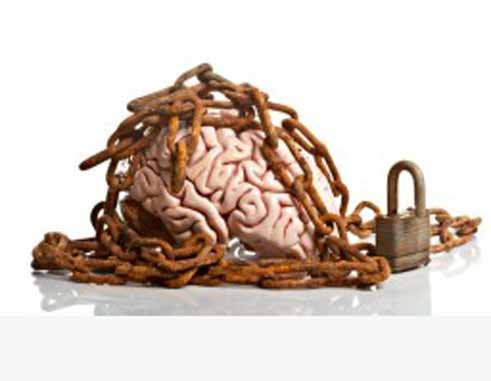Do we learn from our mistakes? Or do we just repeat.
Rinse, wash, repeat.
There is a belief that as time goes by; day by day, millennia after millennia we as a species learn from out mistakes.
Perhaps I'm a little jaded by my own personal experiences and understanding of history.
Have we progressed as a species? Or do we just have new sophisticated way's of repeating the same mistakes.
Being a slave is not just physical bondage, it can as well be mental. In fact, mental bondage is much harder to break then physical bondage. You can remove the slave from the confines of their captures. But sometimes the confines of their captors seeps into the unconscious mind which creates the same mindset.
Perhaps having your own thoughts is a form of freedom, but what forms the basis of your belief system?



May we all step out of Mitzrayim, soon...
Patterns in this universe are inevitable. History has repeated plenty of ways. In the anthropological evolution field experts have professed a belief about an ancient advanced civilization that was lost after the great flood 12,000 years ago. After the flood, agriculture was created in Turkey at the site of Gobleki Tepi. We don't know everything. Tell me what's under the ice of Antarctica. Tell me what's in space. How are we affecting the planet in ways we're unaware?
We had to correct a mistake of progressing the combustion engine instead of the electric car. They were both being developed and the electric could have been a choice. But it didn't get chosen. How are all these manipulated waves going to affect our bodies? Studies from Berkley talk about how you shouldn't even sleep near that thing. It's toxic. They recommend using headphones for calls. Don't forget to remove headphones because they emit a little bit all the time.
We don't know what we're doing. It's like raising a kid for your first time.
nice response!
In my opinion, the basis of your belief system is the perpetual thoughts we have on a continual basis. These thoughts dwell within the realms of our:
Meanings, values, identity, aboutness, principles, decisions, intentions, understandings, expectations, metaphors, realizations, permissions... and more.
Much of these things make up what we believe to be true about our world. So when we can dissect them and then begin to habitually create new patterns that are more useful and effective, then we can thrive and take ownership of our lives (rather than living as slaves, governed by another entity!)
Great food for thought here @bearbear613! I'd love to hear your thoughts about my habitual patterns that I work on every single day. I shared them all here: 10 Highly Influential Things I Do Every Single Day [Part 2]
nice response! I'll check out the blog
Yes and no. Mostly yes. We are far more advanced technologically than we were when Socrates was living. Has human nature changed much since then? In some parts of the world, yes. Europe and the United States are not beset by marauding hoards that rape and pillage. On the other hand, the pillaging takes other forms, such as the advent of confiscatory governments in these regions.
Well yes there is technology, but there has also been lost technology.
Yes we don't have marauding hoards, but that is as long as you have paid protection and policing; meaning past societies who were economically well off did not allow marauding hoards into their country and had some expectation of law-and order. In other words we could lose our law-and-order very quickly if we had an economic collapse. Rinse-Repeat ? Just my thoughts on your comment. Thank you for commenting.
I have read the Bible, I am a believer, it seems that the same problems continually plague mankind. Or to paraphrase, "there is nothing new under the Sun." Do we learn from our mistakes? Certainly, but the real question is do we repeat our mistakes, knowing that they are mistakes, a never ending loop!
This post has received a 1.87 % upvote from @booster thanks to: @dhouse.
@dhouse thanks bud!